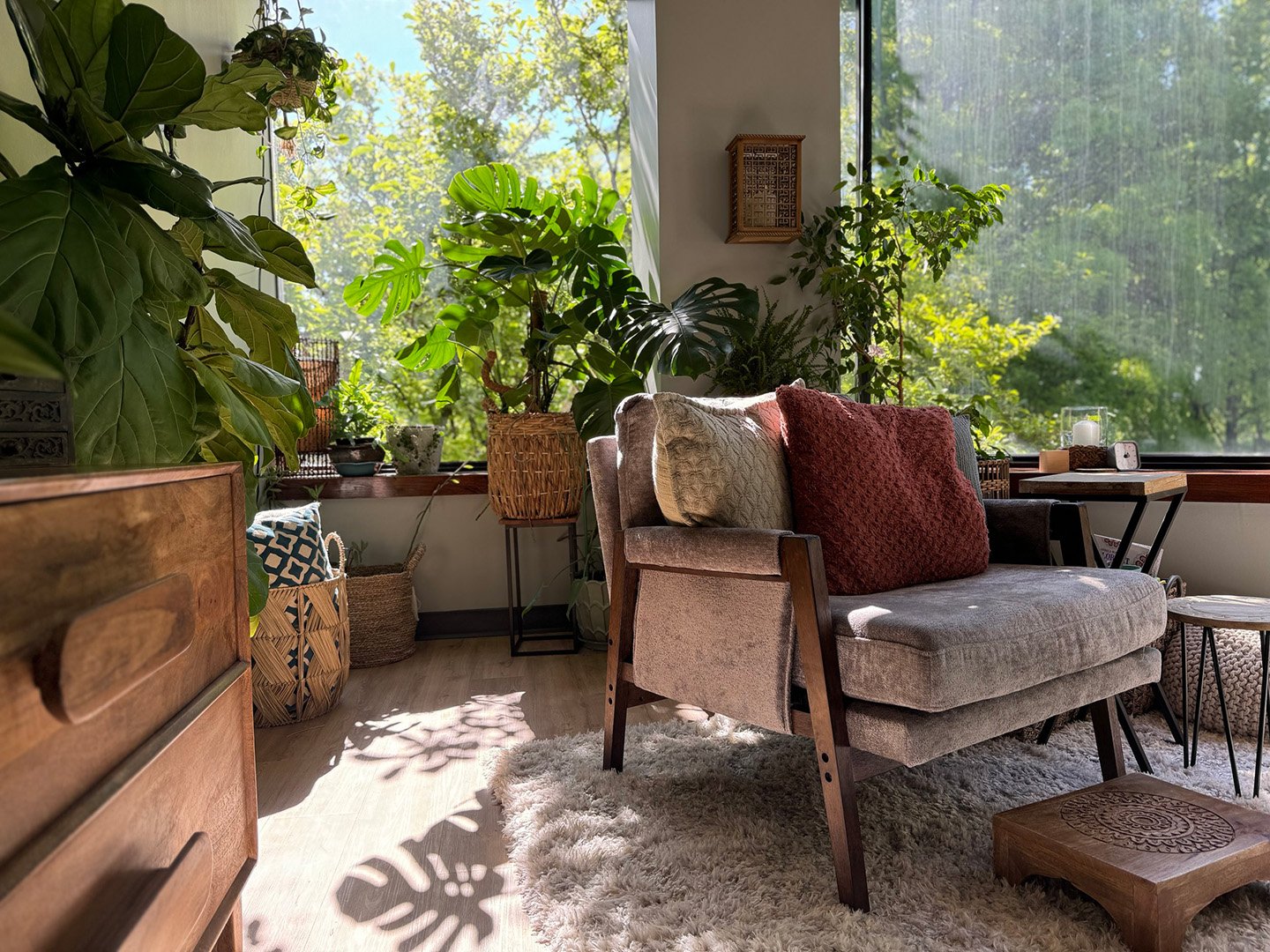
Glossary of Neurodivergent Therapy Lingo
𖥸
Disclaimer
This glossary is for educational and marketing purposes only. We hope this glossary can help you get to know us a little. We do our best to stay up to date with both research and lived-experiences in the worlds of neurodivergence and trauma, and other somatic stuff. We strive to stay up to date with the most respectful and honoring language and believe language is important, knowing we also have internalized ableism and privileges that keep us from seeing ourselves and others completely clearly. We continually strive nevertheless to understand the unique experience of the client we are sitting with and use your language, supporting your connecting with yourself, your life, and your world.
Ableism
Any overt or covert prejudice, discrimination, or bias directed towards people living with disabilities.
Digging Deeper
Understanding and Combating Ableism
Ableism, the systemic discrimination against people with disabilities, manifests in various ways, including towards those of us who are neurodivergent.
Common Ways We Encounter Ableism with Autism, ADHD, OCD, etc.:
Our Own Internalized ableism
Internalized ableism develops as a result of a society that is full of prejudice against disabilities. When we are told parts of us are not welcome, we start to believe it ourselves.
This can be reflected in many ways including:
denying our neurodivergence
denying our needs for support
masking out neurodivergence
comparing ourselves to neurotypical people
placing unrealistic expectations on ourselves like “this isn’t that big of a deal, people do this all the time, you should be able to do this”
Harmful Neurodivergent Stereotypes
Believing neurodivergent people need to be “cured” - examples of this would be ABA therapy or pushing detoxes that promise to “cure” ADHD
“But you don’t look/sound/act autistic.” We’re not even sure what this is supposed to mean but it’s something that autists hear often
Workplace expectations to look and act neurotypical, and to thrive without accommodations (or so often, with counterproductive management instead of accommodations)
Harmful language
One pervasive form of ableism is the use of demeaning labels and harmful language, such as "high-functioning" or "low-functioning," which reduce complex individuals to simplistic categories.
The notion that someone becomes "more autistic" after a diagnosis is a misunderstanding; what often happens is that the individual finally feels validated and safe to unmask and embrace their authentic self.
The Harmful Effects of Ableism
Ableism doesn’t just hurt—it deeply harms. It devalues, dehumanizes, and disrespects individuals, often leading to trauma, shame, decreased self-esteem, anxiety, and depression.
The persistent struggle with societal expectations can even infantilize disabled people, treating them as if they are perpetually childlike and stripping them of their autonomy, and even their choices in their own support they receive.
Steps Toward a More Inclusive Society
So, what can we do to combat ableism and support neurodiversity?
Be an Ally: Speak up and advocate for those affected by ableism. Your voice can challenge harmful stereotypes and promote inclusivity.
Support Neurodiversity: Embrace and support the neurodiversity movement, recognizing that there are many ways for the brain to develop, each with its strengths and challenges.
Treat Everyone with Respect: Respect and dignity should be universal. Avoid making assumptions about what someone needs or how they should act.
Educate Yourself: Learn more about neurodivergent conditions and autistic experiences. Understanding these perspectives can help you better empathize and support those around you.
Apply What You’ve Learned: Now that we’ve explored neurodiversity, it’s great to apply our lens of dignity and curiosity (instead of judgment) to other disabled folks, whether visible or invisible, just like us.
Encourage Authenticity: Create environments where people feel safe to be themselves without fear of judgment or consequences. Celebrate diversity and support others in embracing their true selves. You’re not just encouraging authenticity, but standing behind your commitment to being a safe space for it.
Our Approach to Ableism
Here at The Hope Preserve 🌿
We’re passionate about providing a space that celebrates your unique you. We don’t expect (or reward) eye contact, neurotypical chitchat, or suppressed stimming. We train our therapists to be aware of and dealing with their own internalized ableism so they don’t take it out on you. We do our best to stay up to date with the best support tools and how to modify them for each individual. Most of all, we strive to stay present with you, your needs, and your inherent dignity.
You’re invited to come be yourself with us.
We’d love to support you.
Glossary Index
Thinking of getting started?
We’d love to help you find the right fit
Use this calendar to chat with our front desk without the phone tag,
or get a same-day call/text/email back with the quick contact form.

